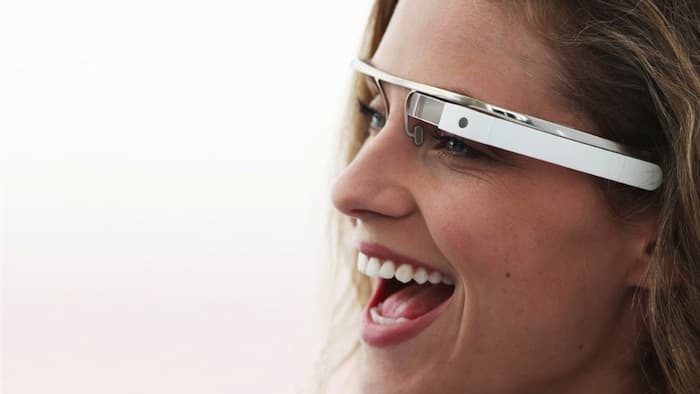Google Glass Tech Specs Out
Google Glass Tech Specs are out - exposing the electronics inside the tiny sticks that put the computing right in front of your eyes. When Google demonstrated the Glass project, most of the people thought it'd just be a pet project Google would kill eventually. But Google's shown a lot of commitment in developing the Glass and has now released its tech specs. Before we talk about the specs, let us tell you - Google Glass does have the potential to become the 'Next Big Thing'; because Google seems to be playing an entirely new game - replacing the computing platform itself and stealing the show from mobile phones to smart glasses.

An Overview Of Google Glass Specs -
For the uninitiated, Google glass is your specs fitted with a mini-computer and a display. The glass gives you a feel of a 25" HD screen put right in front of your eyes at a distance of about 8 ft. It's also equipped with a 5MP camera to click photos and capture videos at 720p HD resolution. Instead of the regular earphones, the Google glass uses bone conduction transducer. By the way - we'd like to inform our readers that 'bone conduction' is the reason why your own voice sounds different to you when you record it and play back.
The Google Glass carries adjustable nose-pads and a durable frame that fits any face. The Glass comes with a pair of nose-pads in two sizes. The Glass can connect to wireless networks via 802.11 b/g and via Bluetooth (specs not available). The Glass also offers quite a lot of storage capacity with about 12 GB of inbuilt memory and 16 GB flash total. The storage is synced with Google Cloud Storage.
The batteries would last for a day of typical use but if you constantly 'Hangout' with your friends, then the battery may not last that long. You can charge the batteries through a Micro USB cable & a charger.
The Glass can synch up with any bluetooth enabled smartphone or tablet. The Google Glass companion app requires Android 4.0.3 (Ice Cream Sandwich) or any latest Android firmware. The app lets you get GPS instructions and send/receive SMS.
Our Thoughts:
Google Glass has the potential to change the platform from mobiles & tablets to glass. A lot of leading electronic companies including Apple, Samsung, Sony & Microsoft are said to be working on their own version of the Glass. If these smart glasses get popular - we might experience a shift from the usage of mobile phones & tablets to glass for daily computing.
Source: #-Link-Snipped-#

An Overview Of Google Glass Specs -
For the uninitiated, Google glass is your specs fitted with a mini-computer and a display. The glass gives you a feel of a 25" HD screen put right in front of your eyes at a distance of about 8 ft. It's also equipped with a 5MP camera to click photos and capture videos at 720p HD resolution. Instead of the regular earphones, the Google glass uses bone conduction transducer. By the way - we'd like to inform our readers that 'bone conduction' is the reason why your own voice sounds different to you when you record it and play back.
The Google Glass carries adjustable nose-pads and a durable frame that fits any face. The Glass comes with a pair of nose-pads in two sizes. The Glass can connect to wireless networks via 802.11 b/g and via Bluetooth (specs not available). The Glass also offers quite a lot of storage capacity with about 12 GB of inbuilt memory and 16 GB flash total. The storage is synced with Google Cloud Storage.
The batteries would last for a day of typical use but if you constantly 'Hangout' with your friends, then the battery may not last that long. You can charge the batteries through a Micro USB cable & a charger.
The Glass can synch up with any bluetooth enabled smartphone or tablet. The Google Glass companion app requires Android 4.0.3 (Ice Cream Sandwich) or any latest Android firmware. The app lets you get GPS instructions and send/receive SMS.
Our Thoughts:
Google Glass has the potential to change the platform from mobiles & tablets to glass. A lot of leading electronic companies including Apple, Samsung, Sony & Microsoft are said to be working on their own version of the Glass. If these smart glasses get popular - we might experience a shift from the usage of mobile phones & tablets to glass for daily computing.
Source: #-Link-Snipped-#
0
